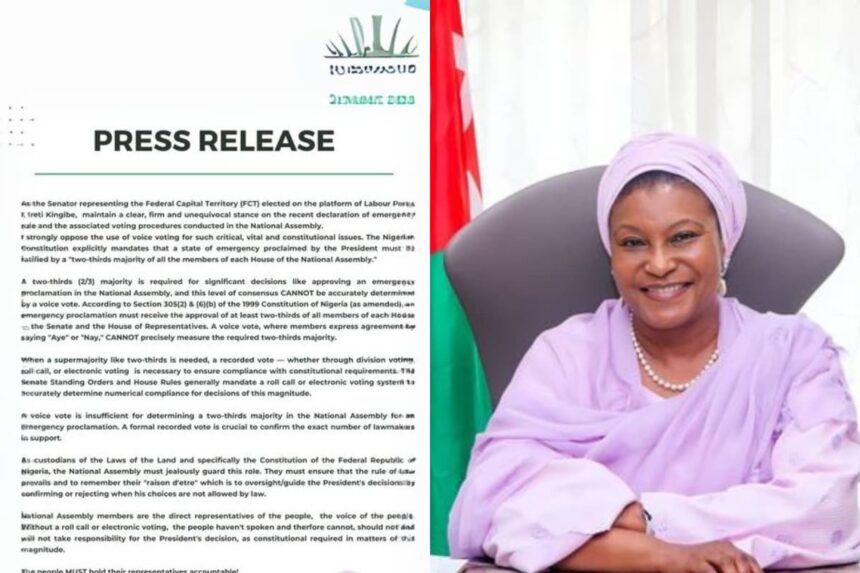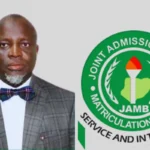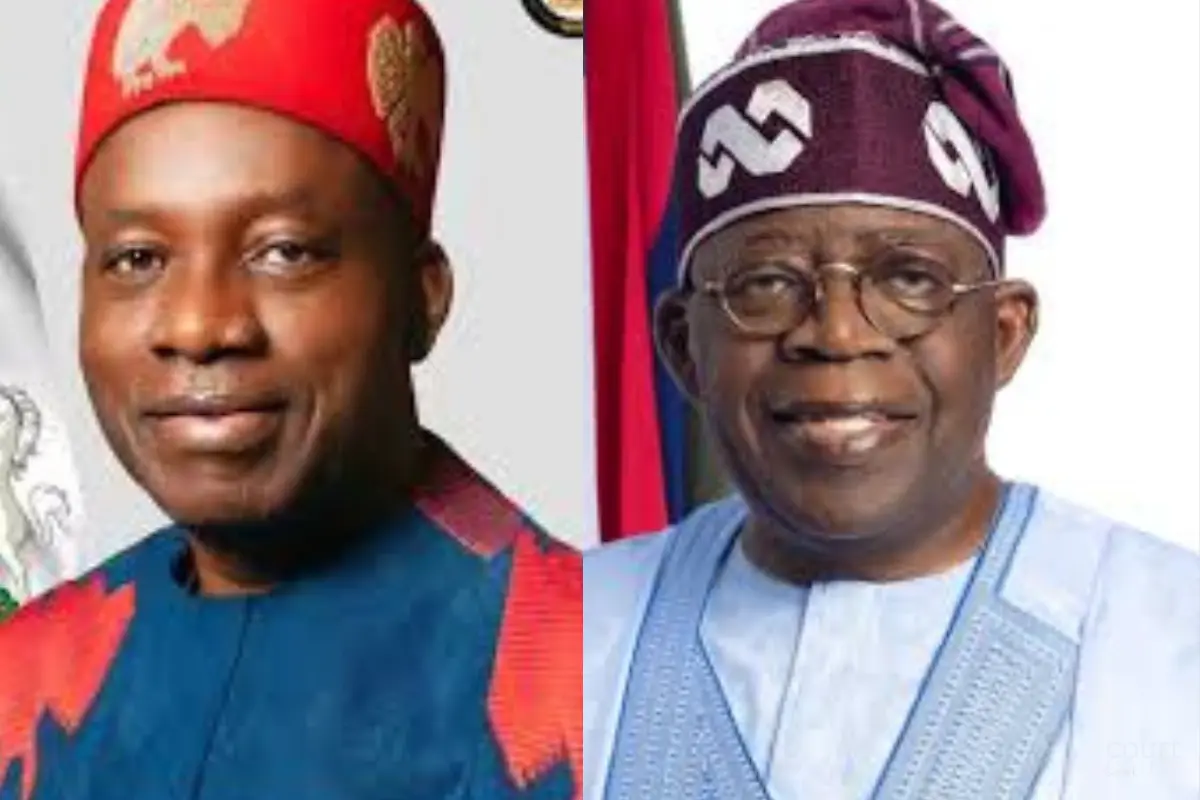Abuja, Nigeria – Senator Ireti Kingibe, representing the Federal Capital Territory (FCT) under the Labour Party, has strongly opposed the recent declaration of emergency rule in Rivers State, raising concerns over the voting process employed by the National Assembly.
Kingibe expressed her discontent with the use of a voice vote for such a critical decision, emphasizing that matters of national significance should be handled with the highest level of transparency and adherence to legal procedures. According to the Nigerian Constitution, a presidential proclamation of a state of emergency must be ratified by a two-thirds majority of all members in each House of the National Assembly.
Citing Section 305(2) & (6)(b) of the 1999 Constitution (as amended), Kingibe highlighted that a verifiable voting process is essential to ensure legitimacy. She argued that a simple voice vote, where lawmakers express agreement through an audible “Aye” or “Nay,” is insufficient to determine the required supermajority for such a consequential decision.
The senator called for a recorded vote—whether through division voting, roll call, or electronic means—as a necessary step to maintain the integrity of parliamentary proceedings. She pointed out that the Senate Standing Orders and House Rules emphasize the importance of precise numerical assessment when dealing with constitutional matters of this magnitude.
“The National Assembly has a duty to uphold constitutional integrity and safeguard democracy,” Kingibe stated. “Lawmakers must remain diligent in their oversight functions, ensuring that executive decisions align with constitutional provisions. Deviating from established voting procedures undermines the legislative process and sets a dangerous precedent.”
Kingibe further stressed that the voices of Nigerian citizens must be accurately represented in legislative decisions. She warned that bypassing a transparent and recorded voting system calls into question the legitimacy of the emergency declaration. She urged citizens to demand accountability from their elected representatives and to insist on adherence to due process in matters of national governance.


















